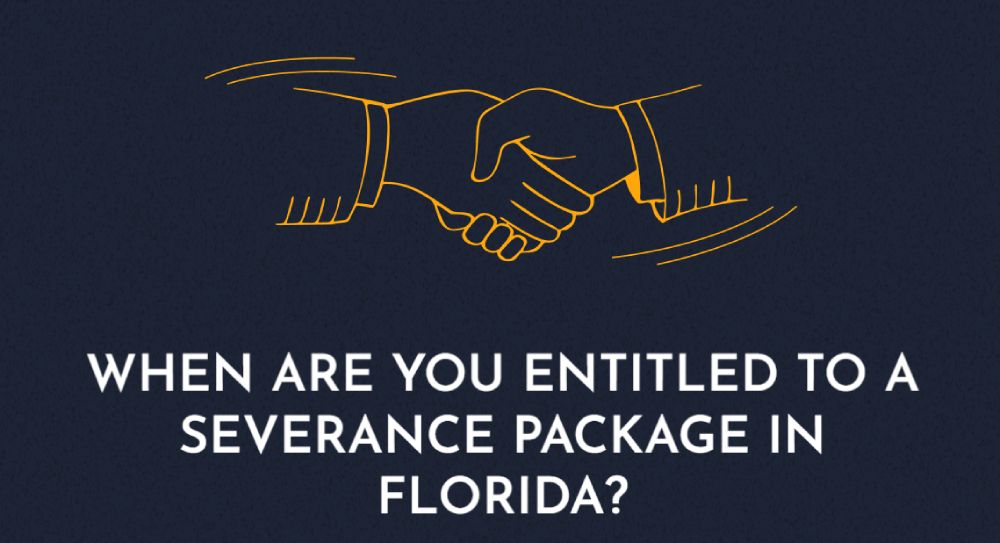
Losing your job can be extremely stressful and lead to uncertain financial times for you and your family. However, a severance package can ease the financial burden that losing your job can bring.
If you believe you have been wrongfully denied a severance package, we want you to know that Brenton Legal, PA is here for you. We have experienced employment law attorneys who can help you get your rightfully earned severance and possibly recover additional damages.
Wondering, Am I entitled to a severance package? If so, you will find this article helpful as we discuss the law surrounding severance packages in the state.
What Is a Severance Package?
Before answering questions about when are you entitled to a severance package, it is important that we clarify what a severance package is. A severance package is a form of financial compensation offered upon an employee’s termination. Severance packages can come in many forms, including more than just monetary benefits. Some of the most common types of severance packages include:
- Lump sum severances – a one-time payment to the employee that can be based on the employee’s length of service with the company or their salary;
- Extended benefit severances – continued benefits such as healthcare and counseling;
- Continued salary severances – allow the employee to continue to receive their salary for a specified amount of time after their termination; and
- Stock option severances – grant the terminated employee an option to purchase their former employer’s stock.
If your employment contract does not include a clause that guarantees a severance package upon your termination, you may be able to negotiate with your employer to add one. A seasoned employment law attorney can assist you in negotiating with your employer to add a severance package clause.
When Do You Get a Severance Package?
There are multiple scenarios where an employer is required to give an employee a severance package. We’ll go over some of the most common instances where employees are generally entitled to severance.
Employment Contract Obligations
If your employment contract contained a severance package clause or if you negotiated to get severance compensation during your employment, you are likely entitled to receive a severance package. If you have been terminated, it is a good idea to look through your employment contract to see if there were any terms that outlined circumstances in which you are entitled to severance.
Collective Bargaining Agreements
If you do not have an employment contract with your employer, you may still be entitled to severance if your union has negotiated severance pay. You should read over any collective bargaining agreements that reference severance compensation.
WARN Act Employees
The Worker Adjustment and Retraining Notification Act, or the WARN Act, is a body of federal law that protects certain employees from termination without proper notice. Employees who work for a medium or large-sized business that employs over 100 people are entitled to 60 days’ notice before mass layoffs. If an employee is not given timely notice of their termination, they may be entitled to severance compensation of up to 60 days of their pay.
Employer Policy
Many employers have internal policies that mandate that an employee be given severance in certain situations. If you have been laid off, you should check your employer’s policies to see if there are any terms regarding employees and severance pay. However, because employers can change their internal policies at any time, it is important to find the most up-to-date policies regarding severance.
Separation Agreements
If you are not entitled to a severance through one of the above routes, you can still try and negotiate a severance package through your separation agreement. Many companies will be amenable to the idea of offering severance in exchange for your promise to relinquish legal claims against them, a non-compete clause, or a promise not to say anything bad about the company. If you were terminated and have not been offered severance, we suggest you seek the help of an employment lawyer who can help you negotiate a better separation agreement.
What Should I Do If I Did Not Receive My Severance Pay?
If you have been terminated and you were entitled to a severance package but still have not received your severance pay, you may understandably be very frustrated. There are steps that you can take to address the issue.
Step 1: Contact Your Employer
To rule out the possibility of an error within the company, you should contact your employer to see why they have not given your severance compensation. If you are unsuccessful in figuring out what has happened, it may be time to escalate the matter.
Step 2: Find an Employment Law Attorney
An employment law attorney can review your employment contract and your separation agreement, and then they can help you to enforce your legal rights to severance compensation. In addition, if you were not originally entitled to severance upon termination, they may be able to help you negotiate with your employer to get a severance package. Further, if the issue cannot be resolved outside of court, they can represent you in your legal case.
Brenton Legal Is Here to Help You
If you were wondering who gets a severance package, we hope you found this article helpful. Employment law can be complex, and severance cases can be challenging, but we are here to help you resolve your matter. We offer free consultations to all of our potential clients. In addition, we work on a contingent basis, meaning there are no upfront fees. You don’t have to pay us until we win your case for you.
To schedule an appointment with our office, you can reach out to us online or by phone. There are critical legal deadlines to meet in every case, so don’t hesitate to contact us today.

